Sue Taylor Middle School in the remote village of Diorila has long had a problem – too few teachers for the number of students. Imagine a school with 90 middle school students, and one teacher! Mali Rising Foundation decided we needed to work with the village to address this problem.
Chatting Around a Dish With the Girls' Project Girls
As part of the Girls’ Project work, each spring we organize a session on eating and cooking healthy, local foods. This session includes preparation of a group meal with the girls. But the session is not only about food – cooking and eating together gives us a great, informal way to talk and share. While we wait for the meal to cook, we share stories around the table. Each girl tells a story that marked her, and shares her dreams and her goals. This is a very important activity that allows girls to confide and share their experiences.
Discussing Gender Violence: Boys & Girls
As we work to help girls succeed in school, we know a good relationship between girls and boys is very important for the success of girls. In Mali, school-based violence is a large-scale problem with harmful consequences for girls, but also for society as a whole. The violence suffered by girls affects their learning, their physical and mental health, their personality and their future. That’s why February’s theme for the Girls’ Project meetings was Stopping School-based Violence.
Female Role Models Inspire Girls
In January, we brought three women from different careers to talk with Girls’ Project girls about their educational and professional backgrounds and the importance of a girl's education. he speakers included a policewoman, an electrician and a firefighter. The visit of three women allowed the girls to to motivate themselves, to be courageous and to know the different functions that women can exercise. The speakers not only talked about their time in school, but also their journey to finding work as a woman. The women stressed the journey to show the girls that magic didn't get them where they are today!
One Boy's Thoughts On Girls' Education
Most of my work focuses on helping Mali Rising’s teachers, but I always enjoy it when I get a chance to be part of the Girls’ Project. My role is to host discussions about girls’ education with boys in our Girls’ Project villages. My goal is to inspire the boys to be allies to their sisters and female classmates and speak out to support their education. At a recent meeting, I found a young man — Sirbiry Doumbia — who was already an avid supporter of girls’ education. Here’s what he told me….
Mothers Standing Up for Girls
By Hindaty Traore, Girls’ Project Manager
It's a Friday morning under a blazing sun in the village of Sankama – home to Judge Memorial Middle School. A group of more than forty people sitting in the school’s Grade 8 classroom with me sat right in front. In front of the crowd, I lead a meeting with the mothers of students in Sankama, a member of the school management committee, and the school principal.
All families are committed to the academic success of their children. However, this success depends on the dialogue between school staff and parents as well as their involvement in supporting their children's education.
To be able to monitor their children's schooling, parents must be well informed of the results, but also of their child's academic behavior. All of these rights were reminded to the mothers during the meeting.
The involvement of parents is very important in the education of girls, especially that of mothers. In Mali Rising Foundation partner villages, we have noticed that parents are less interested in monitoring their children. Everyone sends their child to school but do not know that they have a role to play for the success of their child.
To help change this dynamic, we decided to organize meetings with the women each village to discuss the importance of their involvement in the education of their daughters and how they can do it. We also explained the importance of girls' success for families and the country as a whole. Through the various interventions, we found that mothers do not go to school to know the progress of their daughters, do not follow them at home, and give the girls a lot of domestic work which limits their ability to study.
In our partner villages, women's modest incomes do not allow them to hire someone to help them with housework, so girls help their mothers every day. This means that girls devote less time to schoolwork than school. They have less time to learn and do their homework and this negatively affects their school performance, sometimes causing dismissal or dropping out.
Through our various discussions, the women learned how to help her daughters at home after school, how to go to school each month to check on her child's progress, how to lighten the housework to give time to study and learn.
For the best functioning of the involvement of the mothers of students, we have agreed to hold two meetings a year for the women to discuss their issues and problems. In between these meetings, the women leaders in each village will also remind the mothers of students to follow and give time to their daughters at home, to check in with the school on their daughters’ progress, and other basic strategies.
Sali Diawara's two daughters study at Judge Memorial Middle School in Sankama. Sali says she is involved in the education of her daughters. She explains: “I don’t give my daughters chores when they have to go to school. They only help me on weekends. I would also like them to take private lessons but unfortunately I don’t have enough means.”
Sali herself had the chance to go to school. But she could not continue her schooling because of an early marriage, and she wants her daughters to have a different fate from hers. Thanks to her commitment, her daughters obtain good results -- they are always among the best in their classes. This story encouraged other women at the meeting to do like Sali so that their daughters could succeed too.
The teaching staff of the school also want to help reduce the household responsibilities of girls. Ibrahim Diarra is the principal of Judge Memorial Middle School in Samkama. With his colleagues, they want to organize at least one meeting with parents and traditional and religious leaders to encourage them to support girls' education.
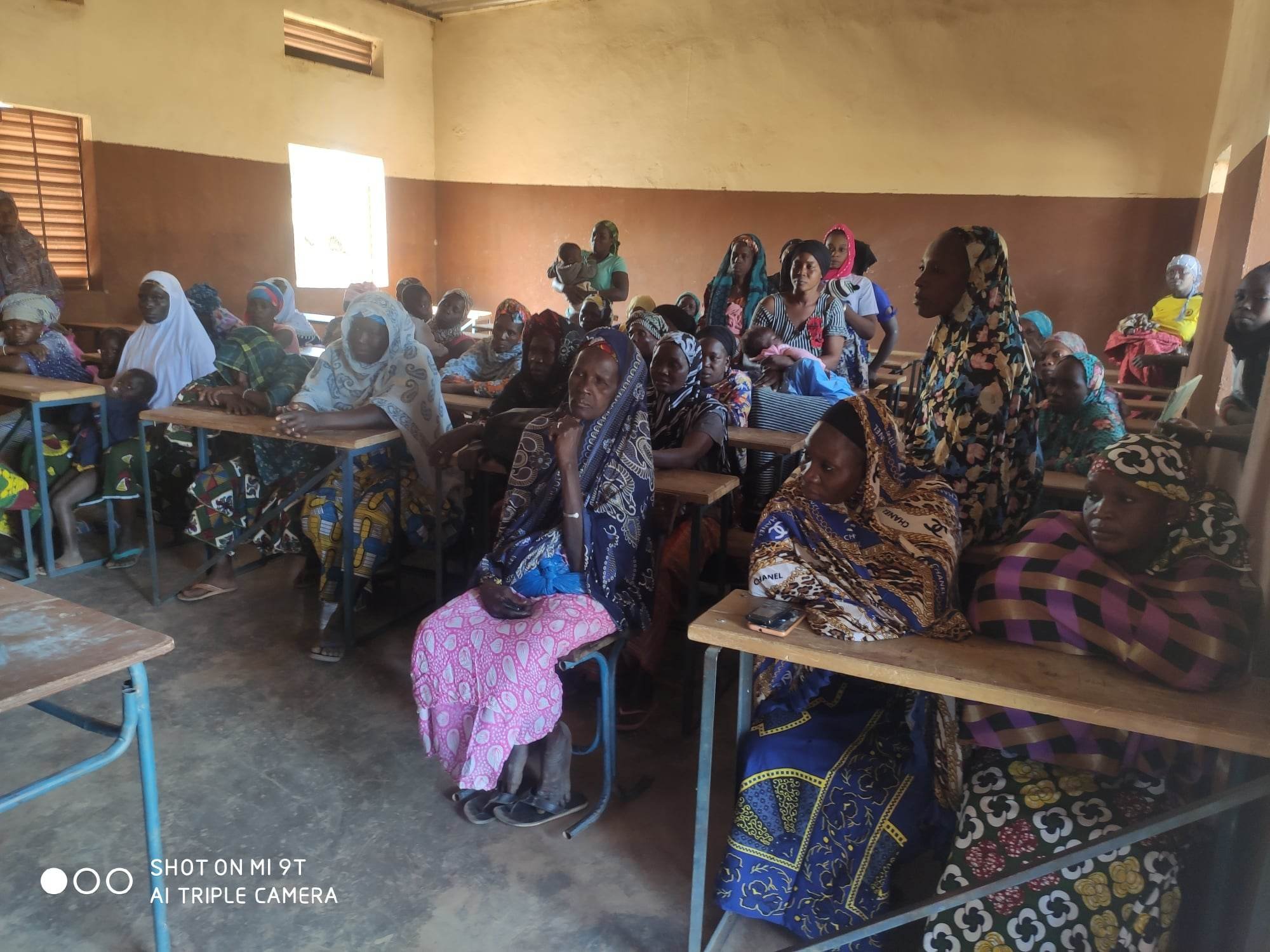
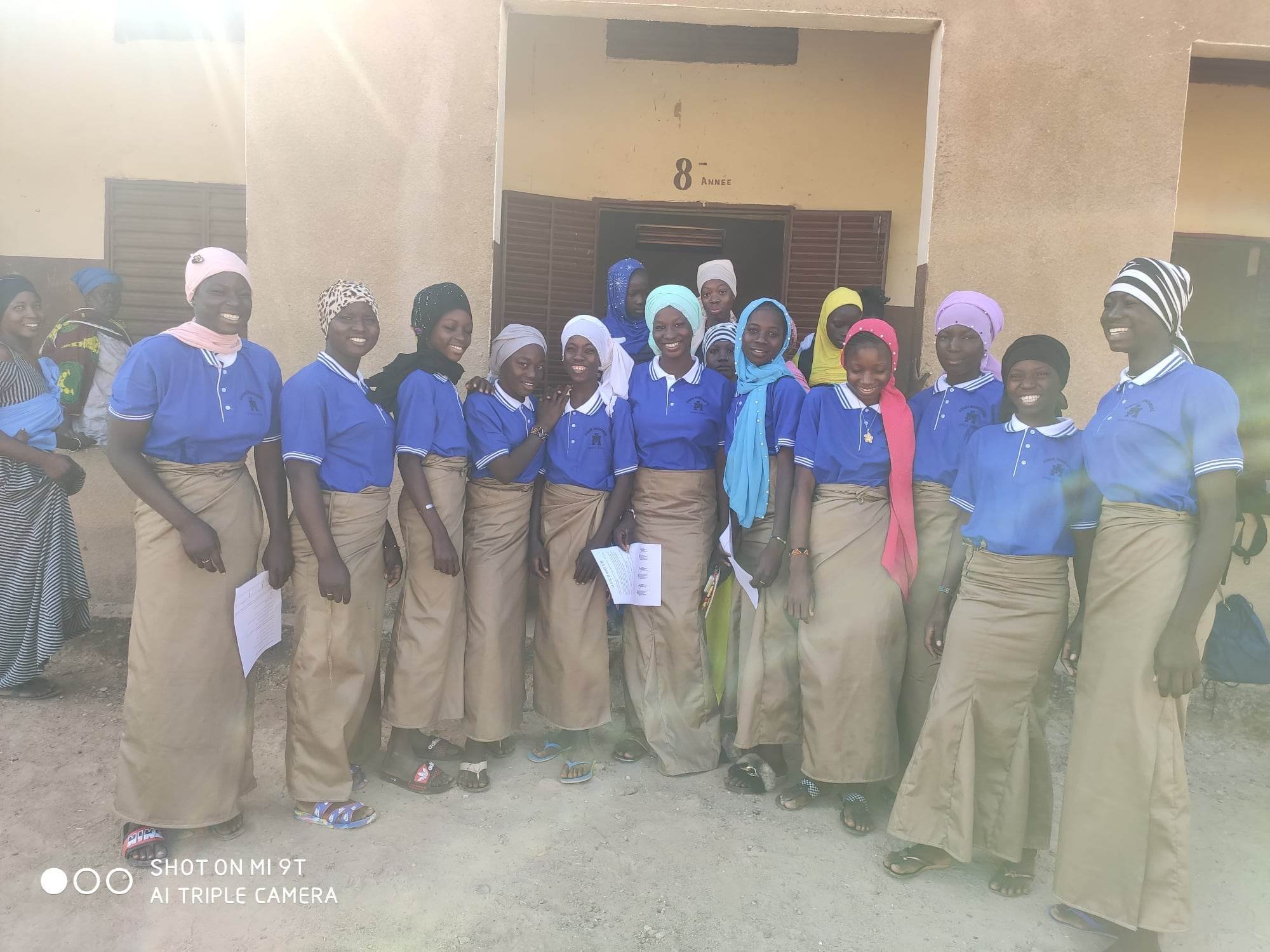
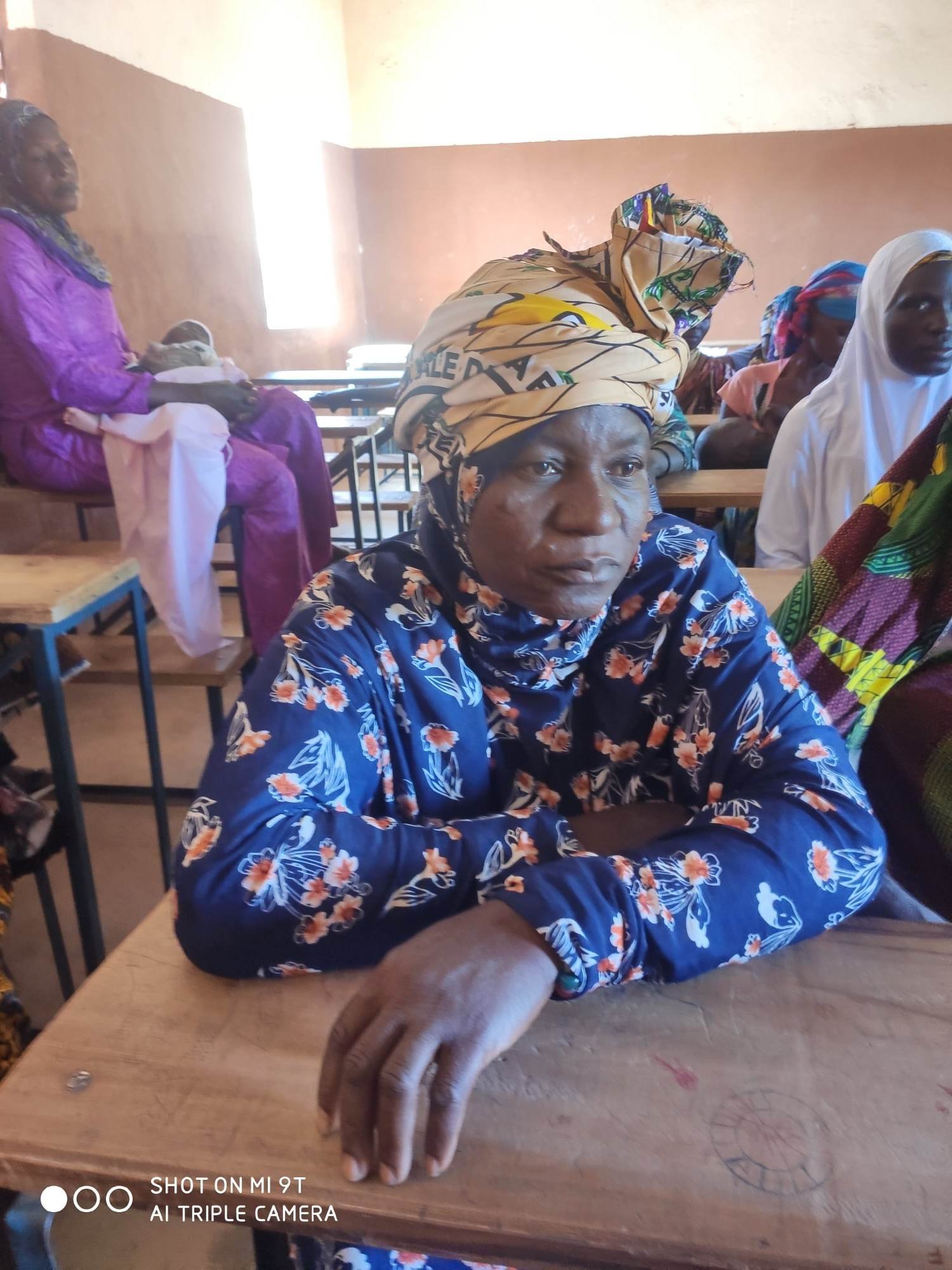
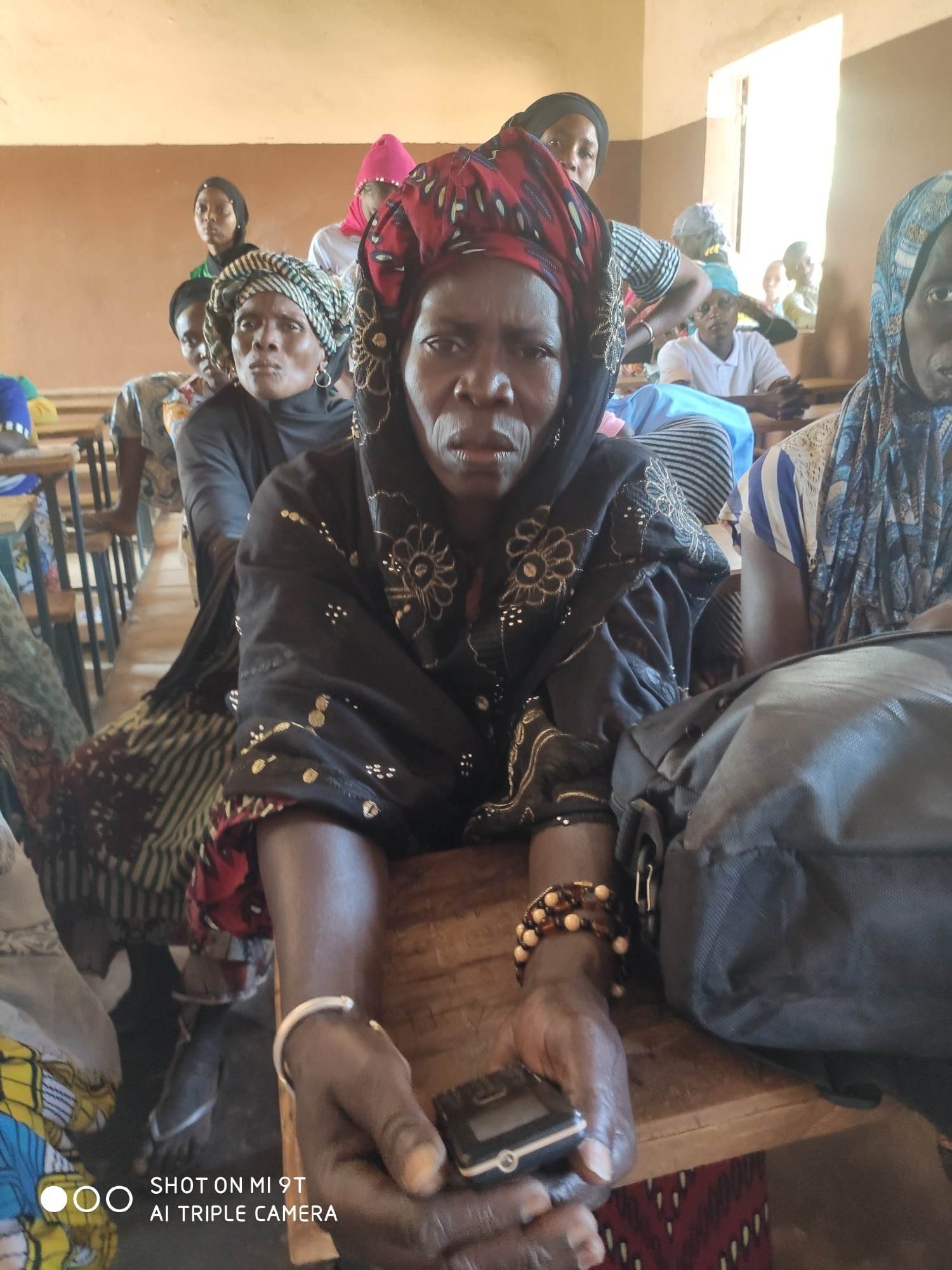
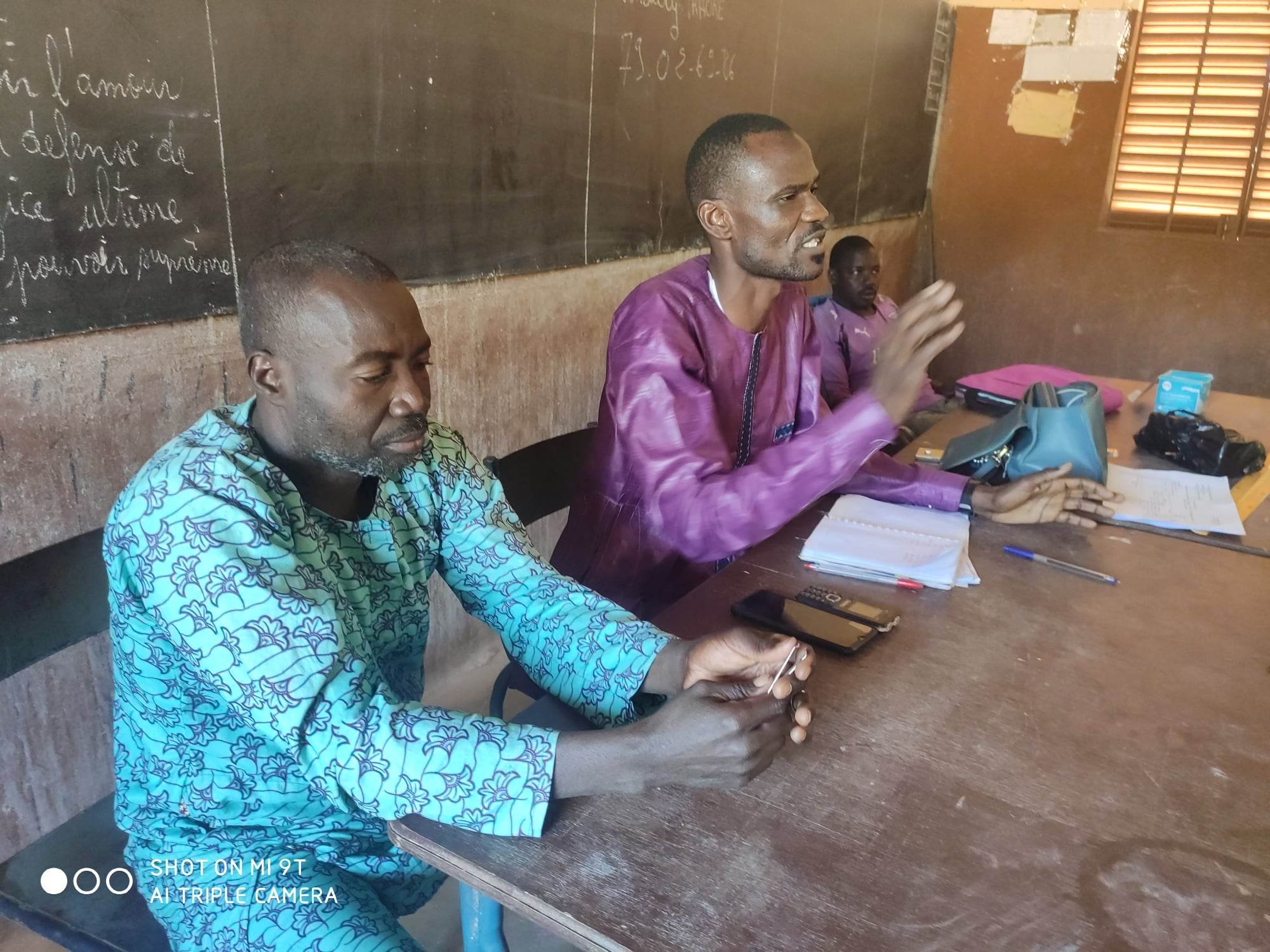
Mr. Diarra explains: “We will raise parents’ awareness of the need to reduce girls’ workload so that they have time to devote themselves to their studies. This is important for their academic success.”
Mah Coulibaly is a housewife in Sankama. She lives with her husband and children. They have two daughters at school. She says: “We don’t have enough resources. My daughters sell my wares. They also help me with other activities. I am aware that this affects their studies. But, I have no one else to help me. I would try to do everything possible to give them time to learn the lessons.”
I drew inspiration from my own story to raise awareness of how girls have more time for their studies when they don't need to spend too much time on household chores. I explained that I help the girls today because I was able to focus on my studies. We concluded our meeting with a short quote “When girls fail, the whole your community has failed, because it is your duty to ensure a better future for them.”
Boys as Allies to Girls
One of Mali Rising’s main goals is to make sure girls have the same chance at education as boys. My co-worker Hindaty leads our very successful Girls’ Project, which implements many strategies to get girls into school and help them succeed there. As part of that work though, we realized that we can’t ignore the role boys could play in helping their sisters — that’s where I come in!
The Hope of Noumousso
A Village Steps Up for Their Girls
Now that the school year is well underway in Mali, I have been checking in with mothers involved in our Girls’ Project Mothers Loan Funds. These funds use revolving credit to help mothers establish small businesses, and the interest is used to pay girls’ school fees. While visiting with the mothers in Tamala, they told me the story of Sitan Samake as an example of the huge changes the Girls’ Project has created in their village.
Breaking Down Barriers To Girls' Enrollment
by Hindaty Traore, Girls Project Manager
Alimatou and Sira in front of their new middle school classroom at Sue Taylor Middle School.
One of the times I feel most proud of my work in the Girls’ Project is when I can help girls who don't want to go back to school or parents who don't want to enroll their daughters in school. Talking through issues with the girls and the parents and seeing them shift to being passionate about girls’ education is just so rewarding!
As the school year began last month in Mali, one of my first priorities was to ensure that many girls could be enrolled in the Girls’ Project partner schools. To this end, we made radio announcements and meet directly with many families. For the most part, these strategies resulted in great enrollment numbers in the schools.
However, despite all my work I knew there were still some girls who were not yet registered for school in October. For example, in the village of Diorila, the principal of our partner school there informed us that the principal of the primary school in Léna -- one of the neighboring villages of Diorila whose pupils usually go to the middle school of Diorila -- had told him that two girls from his school were not enrolling.
I immediately went to Léna to speak to the principal and then to meet with the parents of these two girls. Each girl faced a different barrier to her continued education. The first girl, Alimatou , did not have a birth certificate and her parents thought that meant she could not attend school. The second girl, Sira, was about to be sent to Bamako to look for work to earn money for the family.
For the first family, I was able to assure them that the lack of a birth certificate was not a barrier to enrolment for Alimatou. The parents were pleasantly surprised and quite happy to enroll their daughter. With Sira’s family, the discussion was a bit tougher because the family really needed the funds Sira might earn in Bamako. However, after a discussion of the longer-term economic benefits for the family of keeping Sira in school, they too agreed to enroll their daughter.
Our intervention was able to solve the problems of both girls and they started school just one week late. Given the distance between Diorila and the village of Léna, the two girls settled in Diorila with one of their relative's acquaintances. In exchange, their parents will send sacks of rice to help the host family in Diorila.
Many girls in Mali’s rural villages see their future destroyed by a simple problem or barrier like this. One of the simplest things the Girls’ Project can do is work with families to problem solve and break down these small barriers.



